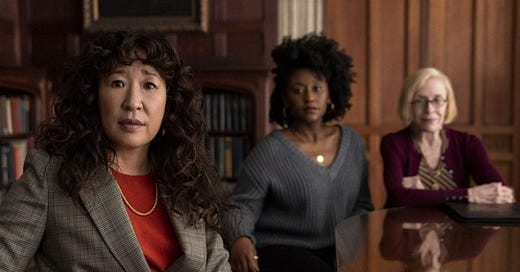Literary Accounts of Academic Wokeness
When truth is stranger than fiction, fiction has its work cut out for it
[Still from The Chair, a Netflix series on a pretty typical university Department of English about which I have written here]
I have a very fat file in my computer that consists of notes concerning crazy things that have happened in my professional life over the past 25 years. Colleagues saying and doing stuff no one outside of academia would believe, my…




